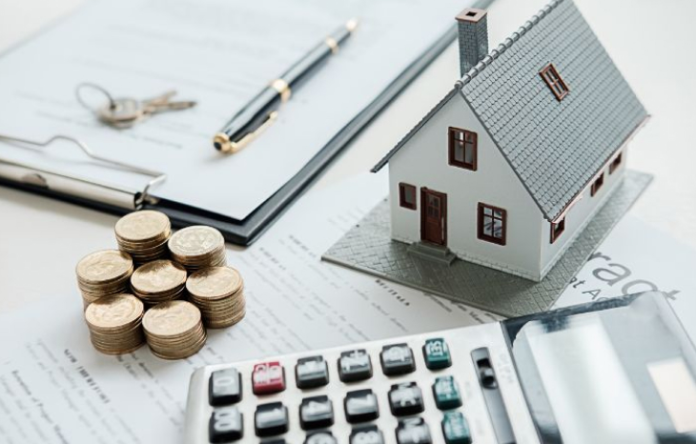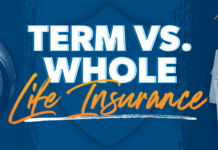Ever wondered so much about the factors affecting your home insurance? Imagine you finally snag your dream home, a cozy haven that whispers stories of laughter and warmth. But, hold on, before the housewarming cake hits the table, there’s a crucial step – securing home insurance. This seemingly dull topic can actually be quite the rollercoaster ride, with premiums fluctuating based on a surprising number of factors.
This guide will equip you with the knowledge to navigate the thrilling world of factors affecting home insurance. We will break down the key elements that influence your premium, empowering you to find the best coverage without getting soaked financially.
The Importance of having a Home Insurance
Let’s face it, home insurance can feel like a financial black hole. You pay money each month, hoping you’ll never need to use it. But trust us, that little piece of paper holds the key to protecting your most valuable asset – your home – from unforeseen disasters. Here’s why having home insurance is more like a superhero cape for your dream house than a boring bill:
-
Financial Fortress: Shielding You from Unexpected Costs
Imagine a fire ripping through your home. The emotional toll is devastating enough, but the financial burden of repairs and replacements could be crippling. Home insurance acts as your financial fortress, covering the costs associated with:
- Dwelling Coverage: This is the big one, paying to rebuild or repair your home’s structure after damage caused by insured perils like fire, lightning, hail, or windstorms.
- Belongings Coverage: Your precious possessions, from furniture to electronics, are covered in case of theft or damage.
- Additional Living Expenses: If your home becomes uninhabitable due to a covered event, your insurance can help cover the cost of temporary housing and living expenses.
-
Peace of Mind Palace: Soothing Your Worries
Owning a home comes with a healthy dose of responsibility. Knowing you have home insurance can be a huge stress reliever. Here’s how:
- Unexpected Events: Life throws curveballs. A burst pipe or a fallen tree can wreak havoc on your finances. Home insurance helps you weather these storms without breaking the bank.
- Liability Lawsuit Sanctuary: Imagine someone tripping and injuring themselves on your property. Home insurance provides liability coverage, helping you cover medical expenses and legal fees in case of such incidents.
Beyond the Basics:
Home insurance can be customized to fit your specific needs. Here are some additional coverages to consider:
- Flood Insurance: Standard policies don’t cover floods. If you live in a flood-prone area, consider purchasing separate flood insurance for that extra layer of protection.
- Earthquake Insurance: Similar to flood insurance, earthquake coverage is often excluded from standard policies. If you’re in earthquake territory, consider adding this coverage for peace of mind.
- Scheduled Valuables: Do you own a prized jewelry collection or a valuable musical instrument? You may want to consider a scheduled valuables rider to ensure they’re adequately covered.
Home insurance isn’t just about protecting your bricks and mortar; it’s about protecting your financial well-being and your emotional security. With the right coverage in place, you can face any storm life throws your way, knowing your home (and your wallet) are safe and sound.
Factors Affecting Your Home Insurance
Securing home insurance is a crucial step in safeguarding your castle, but navigating the world of premiums and factors influencing them can feel like deciphering an ancient scroll. This deep dive will equip you with the knowledge to understand the key factors affecting your home insurance bill, empowering you to find the best coverage at the most reasonable price.
-
Location:
Just like finding the perfect house, location plays a starring role in home insurance. Here’s how your zip code can impact your premium:
- Crime Rates: Areas with higher crime rates typically see increased premiums due to the higher risk of theft or vandalism.
- Natural Disasters: Living in earthquake or flood-prone zones can lead to higher premiums, as insurers anticipate a greater risk of claims.
- Proximity to Fire Services: Being close to a fire station can actually lower your premium, as firefighters can respond faster in case of an emergency.
-
Your Home’s Story: Age, Materials, and Replacement Costs
Every home has a story, and insurance companies want to hear it! Here’s how your home’s characteristics can affect your premium:
- Age of Your Home: Older homes may require more maintenance and repairs, potentially leading to higher premiums.
- Building Materials: Homes built with fire-resistant materials like brick typically have lower premiums compared to those with wood frames.
- Replacement Cost: The more it costs to rebuild your home, the higher your premium will likely be. This considers factors like size, construction materials, and local building costs.
-
Your Claims History and Credit Score
Taking a proactive approach to homeownership can save you money:
- Claims History: Filing frequent insurance claims can signal a higher risk to insurers, potentially resulting in increased premiums.
- Credit Score (in most states): In many states, insurers use your credit score to assess your financial responsibility, with a good credit score potentially leading to lower premiums (check your state’s regulations).
-
Security Systems and Preventive Measures
Investing in your home’s security can lead to sweet rewards:
- Security Systems: Installing an alarm system or other security measures can demonstrate a lower risk of break-ins and may qualify you for discounts.
- Preventive Maintenance: Regularly maintaining your home, such as getting roof inspections or installing hurricane shutters, can show you’re proactive and potentially lead to lower premiums.
Bonus Tip: Coverage and Deductibles: Balancing Protection and Price
While all these factors influence your base premium, you still have some control:
- Coverage Limits: Choosing lower coverage limits will reduce your premium, but ensure it’s enough to rebuild your home in case of disaster.
- Deductible: A higher deductible lowers your premium, but you’ll have to pay more out of pocket if you need to file a claim.
- Compare Quotes: Get quotes from multiple insurance companies to find the best combination of coverage and price.
- Bundle with Auto Insurance: Bundling your home and auto insurance with the same company can often lead to a discount.
Home insurance is an investment in your peace of mind. By understanding the factors affecting your home insurance, you can make informed decisions and find the perfect coverage to shield your dream home from financial storms.
Frequently Asked Questions about the Factors Affecting Home Insurance (FAQs)
Now, let’s see some of the major questions people are asking about the factors affecting home insurance:
Q: How much does home insurance cost?
A: Unfortunately, there’s no one-size-fits-all answer. Premiums vary depending on the factors mentioned above. However, getting quotes from multiple companies can help you find the best coverage at a competitive price.
Q: What type of coverage do I need?
A: Standard policies cover many common perils, but additional coverages may be necessary depending on your situation. Consider flood insurance if you’re in a flood-prone area, earthquake insurance in earthquake zones, or scheduled valuables riders for prized possessions.
Q: What can I do to lower my home insurance premium?
A: Here are some tips:
- Shop around and compare quotes.
- Increase your deductible (the amount you pay out of pocket before insurance kicks in).
- Improve your home’s security.
- Maintain your home to prevent damage.
- Bundle your home and auto insurance with the same company (if available).
Q: What should I do if I need to file a claim?
A: Contact your insurance company as soon as possible after a covered event. They will guide you through the claims process.
Q: Does having a dog affect my home insurance?
A: Yes, but it depends on the breed. Certain dog breeds, particularly those considered aggressive or prone to biting (like pit bulls or Rottweilers) may lead to higher premiums or even policy exclusions with some insurers. However, responsible dog ownership, such as spaying/neutering and obedience training, can sometimes mitigate this effect. Always check with your insurance company’s policy on specific breeds.
Q: Does having a pool increase my premium?
A: Yes, pools can be considered a liability due to the risk of drowning accidents. This can lead to higher premiums or even a requirement for additional safety measures like fencing or pool covers.
Q: I work from home. Does that affect my coverage?
A: It depends on the nature of your work. Standard home insurance policies typically cover your home as a residence. If you run a business out of your home, especially one with clients visiting, you may need additional coverage for business property and liability. Consult with your insurance agent to ensure you have the right level of protection.
Q: What’s the difference between replacement cost and market value for my home?
A: Replacement cost refers to the amount it would take to rebuild your home from the ground up using current materials and building codes. Market value, on the other hand, is the fair market price someone would pay to buy your existing home. For insurance purposes, replacement cost is usually the more important factor as it ensures you can rebuild your home in case of a disaster.
Q: My roof is a bit old. Should I get it replaced before getting home insurance?
A: While replacing an old roof can potentially lower your premium by demonstrating proactive maintenance, it’s not always necessary. However, if your roof is nearing the end of its lifespan or shows signs of significant damage, getting it inspected and possibly replaced might be a wise investment for both lowering your premium and protecting your home.
Q: What if I can’t afford the recommended amount of coverage?
A: It’s important to strike a balance between affordability and adequate coverage. While a lower coverage amount will result in a lower premium, it might not be enough to fully rebuild your home or replace all your belongings in case of a major disaster. Talk to your insurance agent about different coverage options and deductibles to find a plan that fits your budget while still offering reasonable protection.
By understanding the factors affecting your home insurance and taking steps to mitigate risk, you can secure the right coverage to protect your investment and have peace of mind knowing your home is safeguarded.
See More Details
Conclusion
Home insurance may not be the most exciting topic, but it’s undeniably crucial. Understanding the factors affecting your home insurance – from your zip code to your dog breed – empowers you to find the perfect coverage to shield your castle from financial storms. By shopping around, taking preventive measures, and asking the right questions, you can secure peace of mind knowing your home, and your wallet, are safeguarded.












